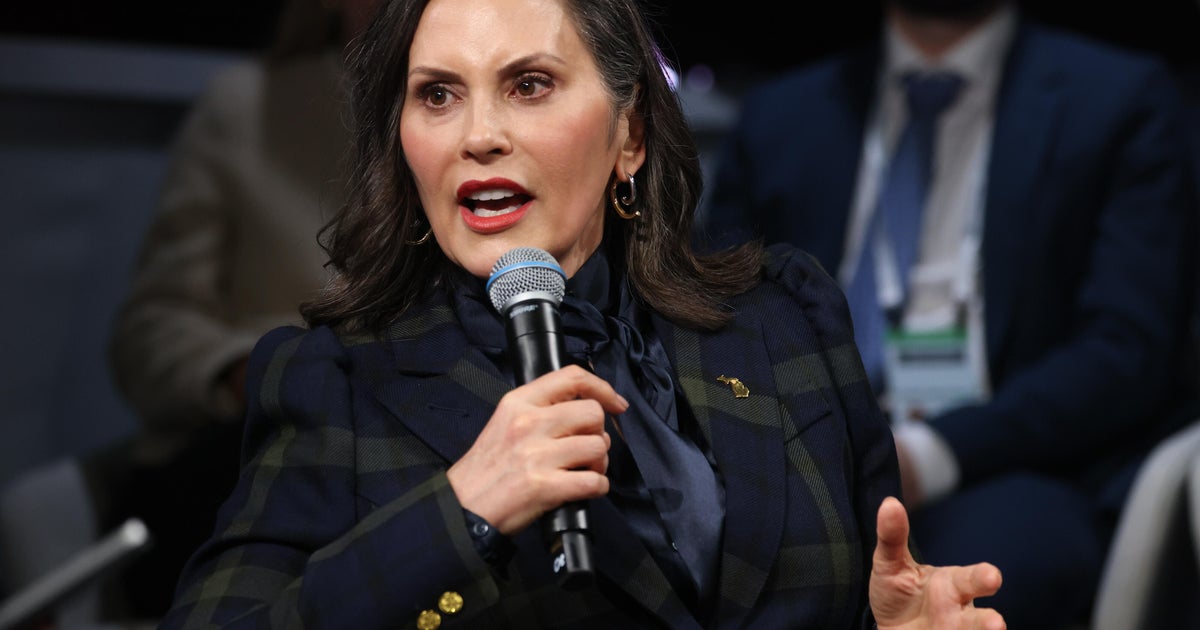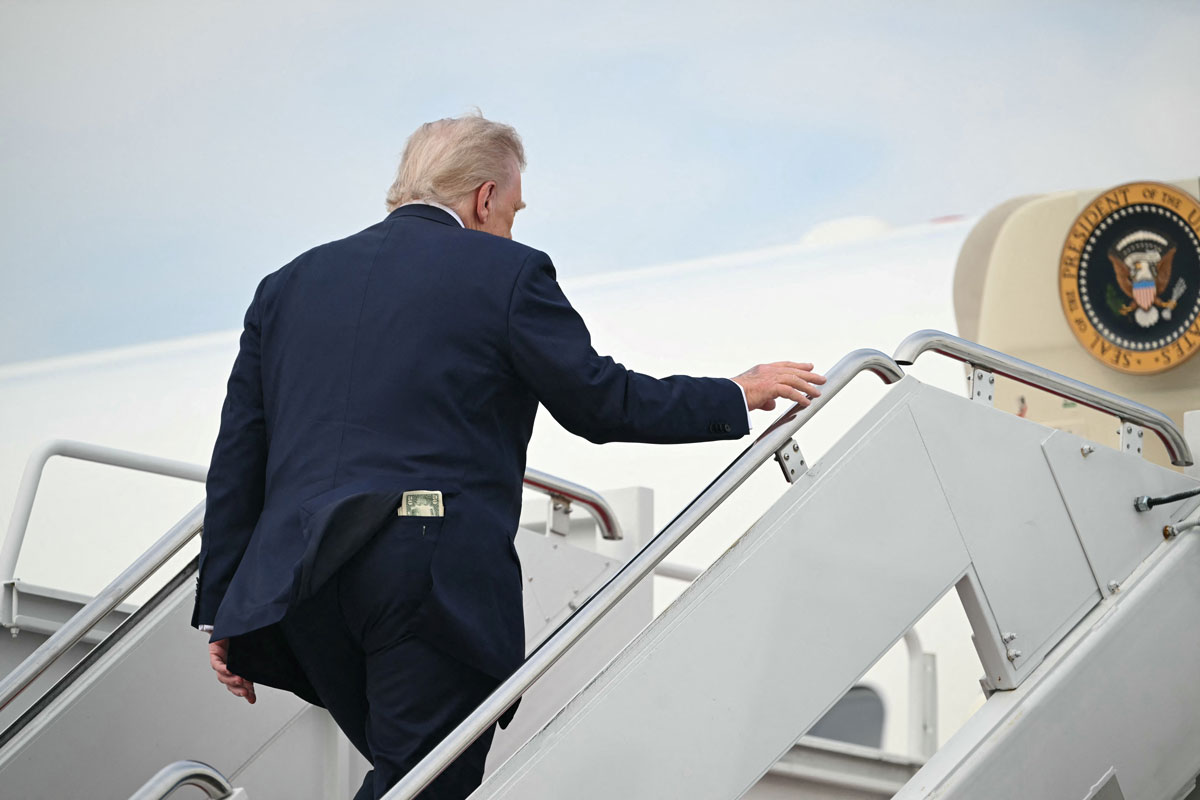Transcript: Rep. Mark Meadows on "Face the Nation," February 10, 2019
The following is a transcript of the interview with Republican Rep. Mark Meadows of North Carolina that aired Sunday, Feb. 10, 2019, on "Face the Nation."
MARGARET BRENNAN: We turn now to North Carolina Republican Congressman Mark Meadows. He is the chairman of the conservative House Freedom Caucus and one of President Trump's top allies on Capitol Hill. Good to have you here.
REPRESENTATIVE MARK MEADOWS: It's great to be with you. Thanks so much.
MARGARET BRENNAN: The White House Chief of Staff Mick Mulvaney was on a number of networks this morning and said he absolutely cannot rule out another shutdown this week. Would you support one?
REP. MEADOWS: Well I think that that's accurate. Obviously no one wants it, the president doesn't want it. Mick doesn't want it. I don't want it. At- at the same time what we're seeing with these negotiations going on- I- I don't know that they're real serious about reaching a compromise. I mean they've met twice in- in almost two weeks now.
MARGARET BRENNAN: And yet Senator Shelby was so optimistic after he met with the President this week.
REP. MEADOWS: Yeah I- I- I heard that and- and Senator Shelby is a, you know, a very seasoned negotiator and- and- and certainly when you look at- at his conversations you can draw some optimism from it. But I can tell you based on my conversations with conferees and a number of rank and file, there are distinct differences. And- and here's- here's what I'm concerned about. Border Patrol came in to brief the conference. They gave their top three priorities and the conferees have said zero money for those top three priorities. How can you be serious about securing our border if the very people that are experts on securing it say these are our top three priorities, we need money. And yet they're saying zero dollars for that. I- I don't understand that.
MARGARET BRENNAN: So what is it that you need to see in order to get your vote and that of your caucus?
REP. MEADOWS: Well I think we need to make sure that our border is secure, not just from a standpoint of strategic fencing or border slats, whatever you want to call it, but we need to make sure that once and for all we secure our border to make sure our communities are safe.
MARGARET BRENNAN: And that means explicit wording that says what?
REP. MEADOWS: Well I think what it means is- is some amount of funny- funding that gives border patrol section chiefs the ability to establish priorities, work with the administration on doing that and secure part of the Rio Grande Valley. You know when we look at- at some 30 to 40 percent of those who come here illegally they come through one corridor that- that many times is- is left open. We need to secure it. That requires some type of physical barrier. And- and certainly we would support that. If that number is less than $5.7 billion, certainly everyone should be willing to compromise. I know I am and we'll find that.
MARGARET BRENNAN: Two billion would be the compromise that the White House would--
REP. MEADOWS: Well- well I've heard that reported honestly when you look at zero to five point seven, somewhere in the mi- middle would be, you know, a 2 billion to 3 billion dollar range. But it's not as much just the dollar amount. It's the flexibility and how to spend it. I think what Democrats are trying to do is say you can spend it here you can't spend it there. And really the experts should be the ones deciding how we spend it.
MARGARET BRENNAN: Two of the senators involved in negotiations were on Fox today saying that one of the sticking points is the number of ICE agents. What is that?
REP. MEADOWS: I think it's more detention beds when-when we look at ICE versus detention-detention beds and what they're talking about is those who come across the border illegally, cutting down on the number of beds which would actually force them being released into the United States and so it's more of an open border policy that some Democrats have supported in the past. And- and I don't think that-that's-in fact I know that's not going to be supported by this administration.
MARGARET BRENNAN: So we are just days away from running out of money.
REP. MEADOWS: Right. Yeah.
MARGARET BRENNAN: How does this end? And do you expect the President to declare a national emergency?
REP. MEADOWS: Well I- I do expect the President and take some kind of executive action- a national emergency is certainly part of that. There are a few other things in his toolbox that he could use. But I do expect him to do that if we don't reach a compromise. And, listen we have about 24 hours to do that. At this point they're going to need to look at some type of funding measure to make sure that we don't have a lapse, whether that's a clean C.R. for a short term basis or a-a longer period going through the end of September. They need to make sure that they have something on the table and ready to be voted on in the Senate where we could pass it in the house without a lapse in funding.
MARGARET BRENNAN: Congressman, you and your fellow Republican colleagues were incredibly critical of the last administration when they used executive action that bypassed the will and consent of Congress. How can you support it this time?
REP. MEADOWS: You know I have been. And here's one of the things that I would reach out to my Democrat colleagues. If once and for all you're wanting to work in a bipartisan manner, to return the power back to Congress, I'm willing- I'm- I'm willing to do that even now with this president, with our president's party in the White House, I'm willing to do that. But until we do that, why should we allow a Democrat President in the White House to use executive orders and- and not do the same with a Republican President. I've put forth measures that would actually eliminate some of the executive branch power. You know philosophically, that's where I am. And yet, at this point, we have a crisis. We have a crisis with a need to secure the border that we have to do. And this President is going to build a wall one way or another.
MARGARET BRENNAN: Congressman thank you for giving us your perspective.



